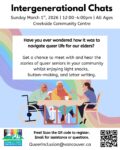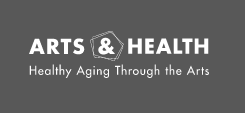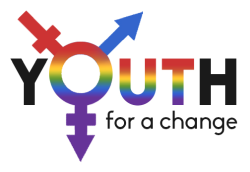What do I fear? My major, overwhelming, fear is climate change and that we, and our governments, will not do much to prevent it and, therefore, will not prevent the result of it: a world deteriorated beyond natural recovery, leading to mass extinction of current life on this planet, and on the way to that, chaos, with fire, flood, drought, food and water scarcity, some of which we have already seen, leading to the eventual collapse of civilizations. We are already at 1.48 degrees above preindustrial levels1, and this year will be even hotter. Mass extinction has happened before on planet Earth; it’s happening right now, and this time, we caused it. This is real; it is not science fiction, and it is going to affect you and those you love.
But as well as fear, I have hope. As Nature Conservancy Canada observes, “There are solutions to climate change and biodiversity loss. Will you be part of it? This is the moment where a decision must be made to work together to avoid the worst case scenario or stand idly by and watch. . . . You have the power to save the world.“2 It is not yet too late. So do yourself and the world a favour: get involved instead of shrinking back because you’re too busy, you don’t know what to do, it’s too overwhelming, too grim and too hopeless. It is only hopeless if we do nothing. Now is the time to be a climate activist, as the young people are telling us, the ones who will reap what we do or don’t do now. There are many ways we can do that, not just the obvious one of stopping using fossil fuels.
Read All We Can Save Truth, Courage and Solutions for the Climate Crisis edited by Ayana Johnson and Katherine Wilkinson for, as Rolling Stone tells us, a “feast of ideas and perspectives, setting a big table for the climate movement, declaring all are welcome.”3 It should be required reading for all of us, and it will give you a clear picture of what needs to happen to restore mother earth and so many ideas for what you, personally, can do, and where and how you can apply pressure for change. It will give you hope and show you how you can make a difference. You’ll meet women like Mary Ann Hitt who, working with Beyond Coal Campaign, shut down 315 coal plants in the USA and is working on the remaining 215. 4 And many of the articles make it clear that working for a way of living for humanity that does not create climate change, also means working for a fairer world, one that re-envisions “our societies in ways that are not just in keeping with our ecosystems but also make our lives better.”5 As Fix The News reports, “Our conversation with activist Flora Vano showed us that climate justice isn’t just about the environment. By training women in Vanuatu to lead the disaster response, Flora has created a wave of social change that’s making room for women in decision-making spaces and challenging traditional gender norms.”6

All We Can Change is a powerful, compelling read, both realistic about the enormity of the problem and the solutions, and hopeful. It’s a collection of sixty essays and poems from sixty women, including Alice Walker, Naomi Klein, Marge Piercy, and Mary Oliver, to name some of those more familiar to you. Many of them are making a concrete difference in the world right now as well as building communities of support — which is huge in this effort to make the earth carbon neutral. As Johnson and Wilkinson comment, “All around the world, women and girls are making enormous contributions to climate action”, and many of them are introduced to us in this book. They’re “bringing forth what Johnson and Wilkinson call a feminist climate renaissance”7 built on concern, compassion and connectivity. Included in this approach are actions that any of us can take, from composting your garden, so the soil becomes rich and absorbs carbon, or buying your food from a farm that refuses to monoculture or use chemicals, to emailing or phoning your MLA and MP, urging them to support building adequate public transit and electric car infrastructure, stop subsidizing the oil industry, and stop logging so much and so carelessly, as well as incentivizing farmers to stop using chemicals and to rotate crops, so the soil is healthy and will absorb carbon. You can talk to people about climate change every day. You can get out on the street and march for action on climate change and march for peace to end the military’s huge carbon footprint. Last year, Canada spent $27 billion on the military and only $2 billion on climate change; $22 billion went to subsidize the oil industry at a time when it was making record profits and continuing to accelerate climate change.8 You can work on changing those priorities, and you can work on making sure the Conservatives don’t form the next government because they will do NOTHING to stop climate change, plus they will do everything they can to affect our queer rights.
As you read this book or think about this article you’re currently reading, remember our queer fight for civil rights — our successful and rapid fight for civil rights — which we gained in 1994. We’re good at exerting public pressure, and we have the numbers to do it. According to a major study by Chenoweth and Stephan, non-violent protests involving 3.5% of the population that have the support of a majority of that population have always succeeded in bringing about serious change.9
It’s up to the people to force politicians to deal with the climate emergency as radically as is necessary. It’s up to us, every single one of us. We have a voice, each of us, and we should use it. We can help move people and our governments to action once more. It is our responsibility to do what we can to heal the sea and the soil, re-grow the forests, heal the atmosphere and curb emissions. This time, climate change is caused by human activity, and the planet’s next mass extinction will be our fault because we did not, would not, change. There is still time to prevent that. Use it.
R.O Kwon says in All We Can Save, “I want to live on a planet that can hold us. I believe we can all still help it, us, do that. If nothing else, why not try? Why not hope and then act as if? This is our one wild, lone home; what other choice do we have?”10
1. CBC. The National. March 2024.
2. Nature Conservancy Canada, https://www.natureconservancy.ca/
3. All We Can Save. P 6
4. Ibid. Grist
5. Ibid. P. 1
6. Fix The News fixthenews@ghost.io via m.ghost.io
7. All We Can Save, P.xix
8. CBC The National, February 2024
9. Chenoweth, E., and Stephan, M., 2011. Why Civil Resistance Works: The Strategic Logic of Nonviolent Conflict. New York, NY: Columbia University Press.
10. Kwon, R.O. All We Can Save, P. 165












